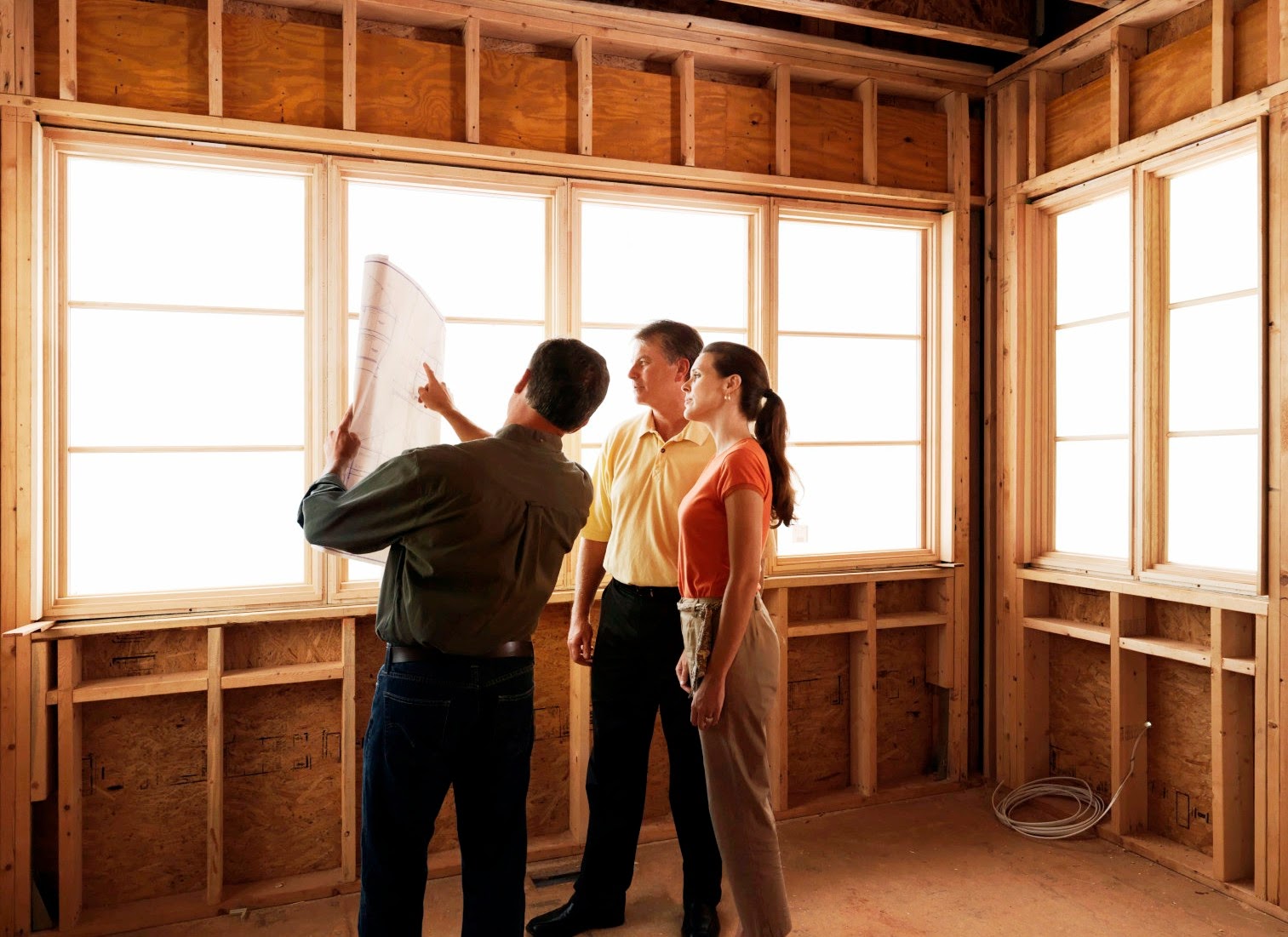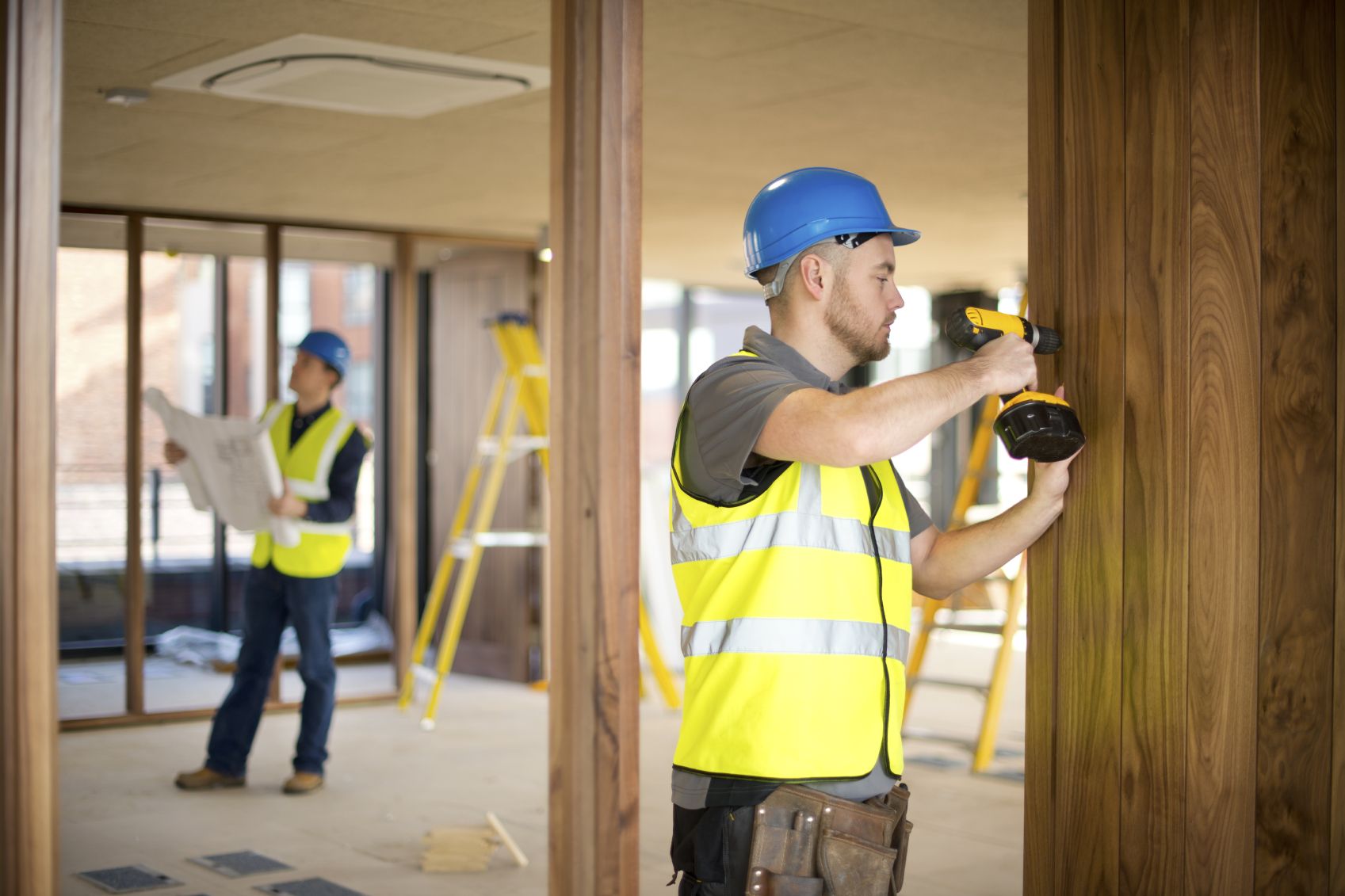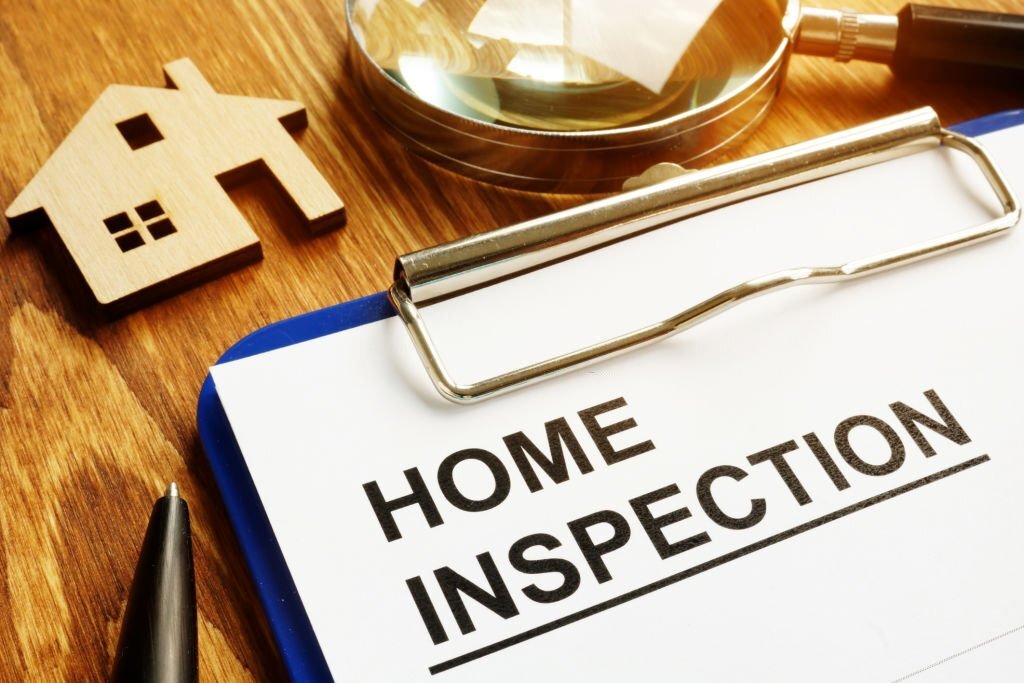The Ultimate Guide to Home Inspection in DeKalb IL

Purchasing a home is likely one of the biggest financial decisions you’ll make in your life. That’s why getting a professional home inspection is so important when buying a house in DeKalb IL. A thorough home inspection will help you understand the condition of the home and identify any repairs that may be needed.
This ultimate guide provides a comprehensive overview of home inspections in DeKalb IL. We’ll cover what you need to know before, during, and after the inspection to make the most out of the process. By the end, you’ll understand the value of an inspection and how to use it to make an informed decision about purchasing a home.
What is a Home Inspection?
A home inspection is a detailed visual examination of the physical structure and systems of a house. An inspector will assess the condition of the home and determine if there are any issues that need to be repaired or monitored.
Some key things a home inspector will look at include:
- Foundation and structure – Checks for cracks, signs of settling, moisture issues
- Roof – Age, material, and any visible damage or wear
- Electrical – Panel, wiring, outlets, and fixtures
- Plumbing – Pipes, water heater, fixtures, water pressure
- HVAC – Furnace, AC, thermostats, ductwork
- Insulation – In walls, attic, windows
- Doors and windows – Damage, leaks, security
- Interior rooms – Ceilings, walls, floors
The inspection provides an unbiased, professional assessment of the home’s condition. It’s different from an appraisal, which focuses on the market value rather than the physical structure.
Why Get a Home Inspection in DeKalb?
There are a few key reasons why you should get a home inspection when buying a house in DeKalb IL:
Learn about the home’s condition
An inspection will reveal potential issues you can’t discover on your own. You’ll get an impartial report on what needs repair or further evaluation. This allows you to make an informed buying decision.
Understand safety and risk factors
An inspector will check for safety hazards like fire risks, mold, radon gas, faulty wiring, and more. Knowing these issues allows you to properly address and reduce risks.
Negotiate repairs or price
If issues are found, you can request the seller fix them or lower the price to cover the costs. This puts you in a better negotiating position as a buyer.
Avoid unexpected costs
Finding issues upfront can help you avoid surprise expenses after moving in. You’ll know what needs repair and can budget accordingly.
Peace of mind
An inspection gives you confidence that you understand what you’re buying. You can feel reassured knowing the home’s true condition.
For most home buyers in DeKalb, the benefits of an inspection far outweigh the costs. Protect yourself by investing in a professional inspection when purchasing a home.
What Does a Home Inspection Cost in DeKalb?
Home inspection costs vary depending on several factors:
- Size of the home – Larger homes take more time to inspect
- Age of the home – Older homes often need a more detailed inspection
- Scope of the inspection – Standard vs. more comprehensive inspections
- Additional services – Radon testing, pest inspection, etc.
On average, you can expect to pay $300-$500 for a standard home inspection on a single-family
home in DeKalb. Here are some typical costs:
- 1,500 sqft home – $300-$400
- 3,000 sqft home – $400-$500
- Radon testing – $150-$200
- Termite/pest inspection – $75-$150
Some home inspectors may charge an hourly rate. This could range from $200-$400 per hour. Inspections typically take 2-3 hours for a single inspector to complete.
Many factors impact the final price, so get quotes from 3-4 home inspection companies before choosing one. Look for an experienced inspector who will provide a thorough inspection within your budget.
How to Choose a Home Inspector in DeKalb
Choosing the right home inspector is key to getting a quality inspection. Here are a few tips for selecting an inspector in DeKalb:
Check licensing
Illinois requires home inspectors to hold a license from the Illinois Department of Financial and Professional Regulation. Verify an inspector’s license is active and in good standing.
Look for experience
Choose an inspector with extensive experience inspecting homes in DeKalb and the surrounding area. They’ll be familiar with local building codes and common issues.
Read reviews
Look for inspectors with overwhelmingly positive customer reviews. This indicates quality inspections and good communication skills.
Ask about their process
Do they use inspection software or paper checklists? Will they provide photos and video in their report? Understanding their process can help you evaluate.
Compare costs
Home inspection prices can vary greatly. Compare quotes among inspectors to find one that fits your budget. Avoid choosing based on cost alone.
Consider their membership
Many inspectors belong to professional organizations like ASHI or InterNACHI. Membership shows commitment to ongoing training and education.
Take your time and choose the right home inspector for you. A few hours researching options can pay dividends in getting a thorough inspection report.
What to Expect During the Home Inspection
A standard home inspection generally takes 2-3 hours from start to finish. Here’s a basic overview of what you can expect:
The walkthrough
The inspector will start with a comprehensive walkthrough of the interior and exterior. They’ll be looking at the foundation, structure, roof, plumbing, electrical, HVAC, appliances, and every room.
Checking systems
The inspector will operate systems like turning on faucets, testing outlets, flushing toilets, checking ductwork, opening windows, and more. This checks functionality.
Identifying issues
As the inspection progresses, the inspector will point out any issues or areas of concern. They may take photos or videos to document these items.
Areas not inspected
Inspectors typically won’t move furniture or items blocking access. They also avoid areas that could be unsafe or damage the home.
Asking questions
Don’t be afraid to ask your inspector questions during the inspection. Any reputable inspector will gladly answer your questions.
Review meeting
Once the inspection is complete, expect a sit-down review of initial findings. This allows you to discuss any major issues identified.
Going in with an idea of what to expect can help the inspection process go smoothly. Remember to let the inspector work uninterrupted so they don’t miss anything important.
What is Checked During a Standard Home Inspection?
Home inspectors look at hundreds of items during a standard home inspection. Here are some of the major systems and components that will be examined:
Exterior
- Roof condition
- Siding, trim, paint
- Windows, doors
- Foundation, structure
- Drainage, grading
- Deck, porch condition
- Chimney, vents
- Outdoor electrical, AC
Interior Electrical
- Main panel, wiring
- Switches, outlets
- Lights, ceiling fans
- Smoke detectors
- Carbon monoxide detectors
Plumbing
- Water lines, shutoffs
- Drain and vent pipes
- Water pressure
- Water heater
- Fixtures like sinks, toilets
- Appliances like dishwasher
HVAC
- Furnace, fuel type/age
- Central air, age
- Thermostats, ducts
- Vents, filters
- Chimneys, flues
Appliances
- Oven, stove, range
- Dishwasher
- Garbage disposal
- Washer, dryer
Other items like pests, radon, lead, asbestos, and mold may be optionally checked for an additional fee. Keep in mind, a standard inspection is visual only. Not all conditions can be identified.
What Isn’t Covered in a Home Inspection?
While home inspections are very thorough, there are some things that won’t be covered during a standard inspection:
Hidden defects
Inspectors can’t see behind walls, under floors, or inside machinery. Hidden issues can only be detected through costly invasive testing.
Wear and tear
Minor cosmetic issues like worn sinks, light scuffs, and squeaky floors typically aren’t noted. Inspectors look for functional defects.
Past repairs
Inspectors can’t tell if past repairs were properly done or if issues have been concealed. They can only evaluate current visible conditions.
Life expectancy
Inspectors don’t attempt to estimate the remaining life of systems like the roof or furnace. Regular maintenance is still essential.
Building codes
Most inspectors don’t check for compliance with building codes or regulations. An additional municipal inspection is sometimes required.
Pest/mold testing
Basic inspections don’t include testing for pests, radon, mold, lead, asbestos and other environmental hazards.
Pools/hot tubs
These require specialized inspections that go beyond the scope of a standard home inspection.
If you need coverage for any of the above items, discuss specialized add-ons with your home inspector ahead of time. This ensures there are no surprises in what is and isn’t covered in your inspection report.
What to Do During the Inspection
As the buyer, try to be present for the inspection whenever possible. Here are a few tips for making the most of the inspection:
- Walk through the home with the inspector. You may see issues they don’t notice.
- Ask the inspector questions if you don’t understand something. There’s no such thing as a stupid question.
- Point out any existing issues you’ve noticed yourself. Don’t wait for the inspector to find them.
- Make sure required utilities like power and water are turned on for testing.
- Inform the inspector of any renovations, repairs, or areas concealed by furniture.
- Allow the inspector to work without interruption. Don’t distract them unnecessarily.
- Take photos and notes yourself for reference later. But let the inspector do the full evaluation.
- Don’t move into the home until all repairs are completed after the inspection.
Being present allows you to get clear answers in real time. Make the most of your chance to learn about your potential new home from an expert.
Understanding the Inspection Report
After the inspection, you will receive a detailed written report of the inspector’s findings. These reports can vary somewhat in format, but most follow similar guidelines:
Summary
Provides an overview highlighting any significant issues or concerns. Read this first.
Full report
Contains specific details on each inspection area: roof, electrical, HVAC, plumbing, etc. Provides details on condition and recommendations.
Rating system
Most use a simple pass/fail or good/fair/poor ratings for each area. Gives a quick visual summary.
Pictures and video
Supplements written findings with visual evidence. Especially useful for serious issues.
Recommendations
Inspector will note any minor repairs, upgrades, or specialist referrals needed. Gives repair guidance.
Standard forms
Checklists and ratings on standard structural and mechanical elements. Quickly identify problem areas.
Limitations
Notes what is excluded, assumptions made, and areas not accessible. Indicates what isn’t covered in the inspection.
Take time to thoroughly read and understand the full report once you receive it. Follow up with the inspector if you have any additional questions.
How to Use the Inspection Report
The home inspection report provides objective information to help guide your buying decision. Here are a few ways to use the report to your benefit as a buyer:
Evaluate deal breakers
If repairs exceed your budget or comfort level, the report may help you walk away. Don’t buy a money pit.
Request repairs
Require the seller repair or replace anything not in working order. Get quotes to justify costs.
Adjust offer price
Ask for closing credits if you’ll pay for repairs. Negotiate using report findings.
Mitigate safety issues
Immediately address any hazards like exposed wiring, faulty railing, fire risks, etc.
Plan your budget
Creates a roadmap for repairs and upgrades. Helps estimate costs and next steps.
Provide peace of mind
Confirms you’ve purchased a properly maintained home with no unpleasant surprises down the road.
Don’t let minor issues derail the home buying process. Use the inspection report as a tool to negotiate a fair deal and set your new home up for success.
What to Do After Receiving the Inspection Report
Once you’ve reviewed the full home inspection report, here are a few next steps to take:
- Review findings with your real estate agent – Discuss any major issues and if there are deal breakers. Create a repair request list if needed.
- Contact the seller – Present repair requests in a clear format with supporting details from the report. Remain cordial.
- Hire contractors for specialized tests – If the report calls for follow-up pest inspection, radon test, mold sampling, etc., hire pros ASAP.
- Obtain repair quotes – Get estimates from contractors to justify repair requests. Consider itemizing mandatory vs. optional fixes.
- Negotiate credits or repairs – Use the report to negotiate with the seller on price reductions or completing repairs before closing.
- Verify repairs – For any work done by the seller, inspect repairs before closing to ensure proper completion.
The next steps you take after the inspection can make or break the deal. Work with all parties to satisfy concerns raised in the inspection report.
Finding the Right Home Inspector in DeKalb
Choosing the right home inspector can be challenging with so many options to sort through in DeKalb. Here are a few tips for finding the best inspector for your needs:
- Ask trusted real estate agents, lenders, friends and family for inspector referrals.
- Look on sites like Angie’s List and HomeAdvisor to read reviews of local inspectors. Focus on consistently positive feedback.
- Confirm the inspector carries liability insurance and is licensed by the state.
- Ask about their experience, certifications, inspection process, report format and fees.
- Choose an inspector that makes you feel comfortable asking questions. Responsive communication is key.
- Avoid inspectors that seem rushed or push additional unnecessary services.
- Request sample reports to gauge the quality, detail and value you’ll receive.
- Consider an inspection company instead of a solo inspector for broader expertise.
- Look for an inspector that follows the strict code of ethics and standards set by professional groups like ASHI and InterNACHI.
Taking your time to find the right home inspector is just as important as finding the right home. By following these tips, you’ll find a trustworthy inspector that provides maximum value for your money.
Visit here more information
The Importance of Regular Home Inspections
A home inspection of Dekalb IL shouldn’t be a one-time event. Regular professional inspections can help uncover emerging issues and prevent costly repairs down the road.
Here are a few benefits of getting repeat inspections over time:
Catch problems early
Identify maintenance needs before they become major repairs. Preserve your home’s value.
Stay on top of repairs
Continuously update your repair to-do list to keep your home in prime shape.
Evaluate upgrades
Determine when it’s time to upgrade aging systems like an HVAC unit or water heater.
Ensure safety
Confirm that safety features like smoke alarms, electrical, and plumbing are working properly over time.
Provide documentation
Detailed inspection reports provide a record of your home’s condition over the years.
Prepare for sale
Inspections help you make repairs to maximize resale value before listing your home.
Budgeting for a professional inspection every 2-3 years can extend the life of your home and prevent headaches. Don’t wait until you have an emergency repair on your hands.



